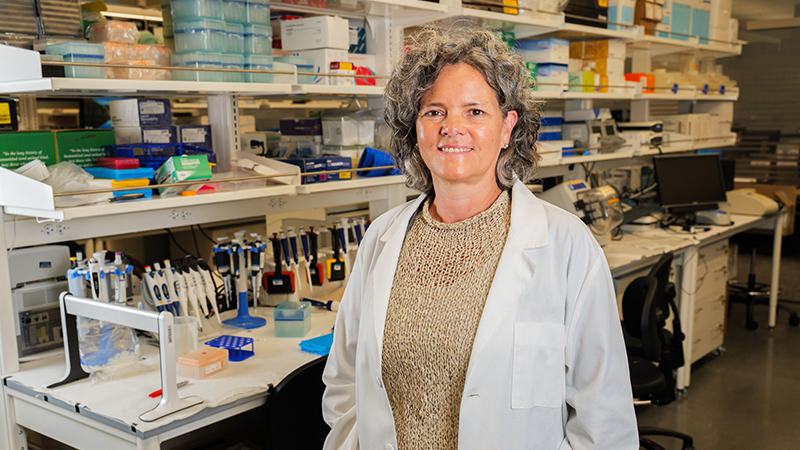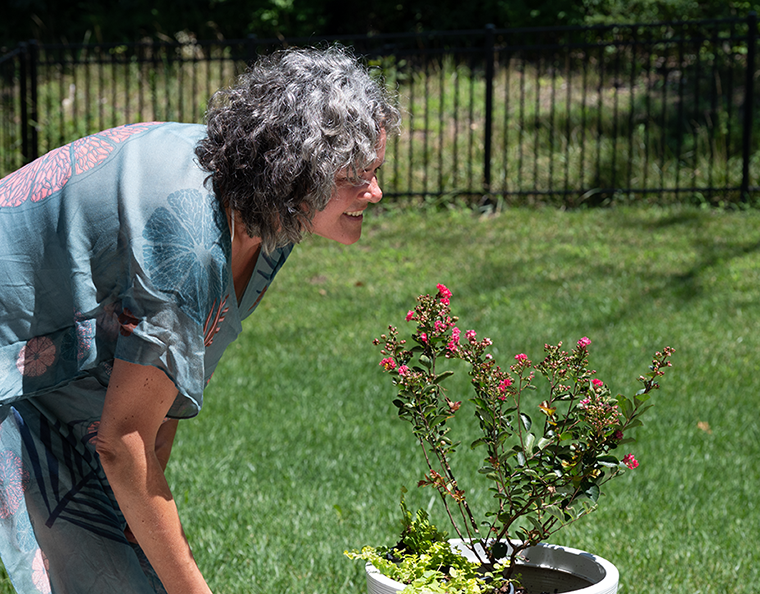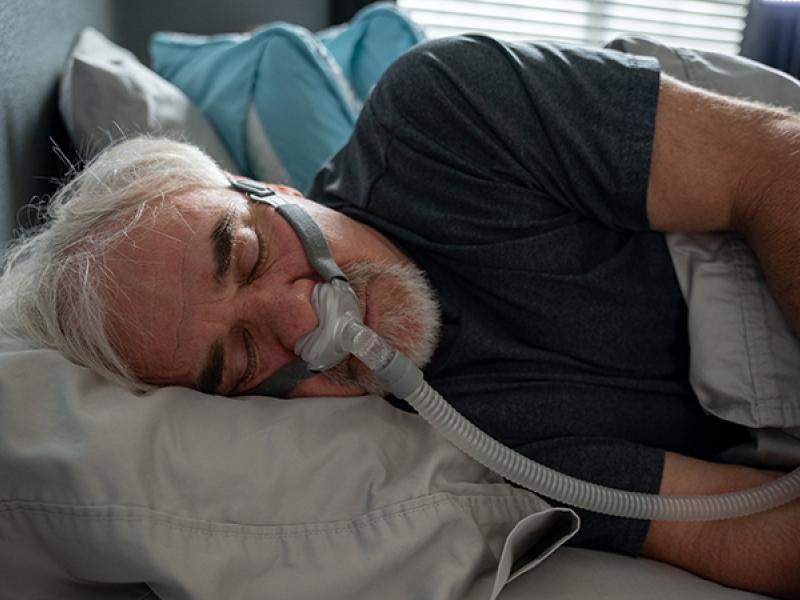
For Bettina Mittendorfer, PhD, moving to Columbia is honoring her European roots. Although Columbia’s population is well over 100,000, its small-town charm felt a lot like home.
“I'm originally from Austria and grew up in a town that's made of about 6,000 people,” Mittendorfer said. “What always surprises me when we go back, is that it’s a completely different lifestyle. People there just live in the day—a kind of simply existing—and there’s something really nice about it. But when I’m back there, there’s something very restless in me when I stay too long.”
Mittendorfer joins the University of Missouri School of Medicine Aug. 7 as the new senior associate dean for Research.
“I think this is a once in a lifetime opportunity for me,” Mittendorfer said. “It’s the right time for me — and I think the right time for Mizzou, too — to jump on and really make an impact and help lead the university in research.”
According to Mittendorfer, one persistent problem in research is accessibility of equipment and resources. As dean, she’ll use her experience from Washington University in St. Louis to connect researchers to the resources they need, in a timely fashion and at an affordable price. She looks forward to overseeing studies pushing the limits of current scientific knowledge, which will one day improve patient outcomes.
“Nowadays, science is more complex,” Mittendorfer said. “More collaboration is needed, along with high-end, sophisticated equipment.”
Coordinating who uses what equipment can become difficult, as some resources are shared not only by School of Medicine faculty, but the University of Missouri as a whole. This makes collaboration that much more important.
“My major focus is the School of Medicine, but it’s also campus-wide because (the school) is so integrated and everything,” Mittendorfer said. “And with core facilities being needed university-wide, oftentimes not just school-wide, I’m hoping I can provide some insight through my experience to make sure that (research) is happening.”
Before joining MU, Mittendorfer served as associate director at the Center for Applied Research Sciences at WashU, which provides resources to conduct efficient and ethical research, especially when working with human participants. She also worked in the Division of Geriatrics & Nutritional Sciences as a professor of Medicine, and was the director of the Clinical Science Research Core of the Nutrition and Obesity Research Center.
Mittendorfer hopes she can use past connections to build bridges between WashU and MU.
“There is a big drive to join forces with WashU and really leverage the resources available at Mizzou and WashU to make it accessible to the greater Midwestern area,” Mittendorfer said. “This is something that I’m still exploring and will continue to explore.”
She plans to continue her research on nutrition and metabolism at MU. As Mittendorfer transitions from WashU to MU, she’ll be doing a lot of collaboration with her former team in St. Louis.
“For example, we put in a research grant proposal that's actually a joint enterprise between Mizzou and WashU,” Mittendorfer said. “That includes the imaging facilities in the Roy Blunt NextGen Precision Health building as well as the WashU Clinical Translational Research Unit.”
This will add to the long list of studies Mittendorfer has published. She’s conducted more than 150 studies and reviews, the majority focusing on metabolism, nutrition, exercise and how lifestyle affects multiple health conditions. She’s fascinated by the human body and how it functions.
“This is understanding what keeps us healthy,” Mittendorfer said. “It’s really what I’ve always been interested in, even in youth, I think the beauty of it all is that it affects pretty much everyone. We all need to eat. Nutrition, exercise, lifestyle intervention — it’s just something that’s very applicable.”
When she was young, she thought becoming a doctor meant being a small-town general practitioner, doing little to no research work. So, when she went to college at the University of Vienna, she had one goal: Figure out how to learn about medicine, without having to actually practice it.
Her search eventually led her to Galveston, Texas—which required her to fly on a plane for the first time. There, she earned her PhD in Nutritional Biochemistry and Metabolism. Mittendorfer says had she known that doctors could practice medicine and conduct research, she would have pursued medical school. Regardless, she has no regrets, as she’s still doing the kind of clinical and translational research she loves to this day.
After completing her PhD, she originally planned to return to Europe but received an offer from WashU and accepted it at her mentor’s urging. She decided to stay in Missouri because she had access to great resources — plus, she had a baby.
“When you have kids, you kind of stay until they go,” Mittendorfer laughed.
With her only child off to college this fall, she felt it was the perfect time in her personal and professional life to make a change. But she’ll miss St. Louis, and the little bit of walkable city life she managed to find.
“I lived in the Central West End, I walked to work, I walked to the grocery store, I really enjoyed that,” Mittendorfer said. “I was very close to Forest Park and everything.”

Mittendorfer is settling into Columbia and loves to be outdoors. Her new home has a fresh, large, green patch of grass she plans to turn into a garden.
“I look forward to starting a garden,” Mittendorfer said. “Both designing it from scratch and planting. I don’t mind at all that it’s a patch of grass, because I can do whatever I want with it.”
When Mittendorfer looks out to her backyard, explores her new city or plants the seeds for a new research project, she feels the same feeling: a fresh beginning.





